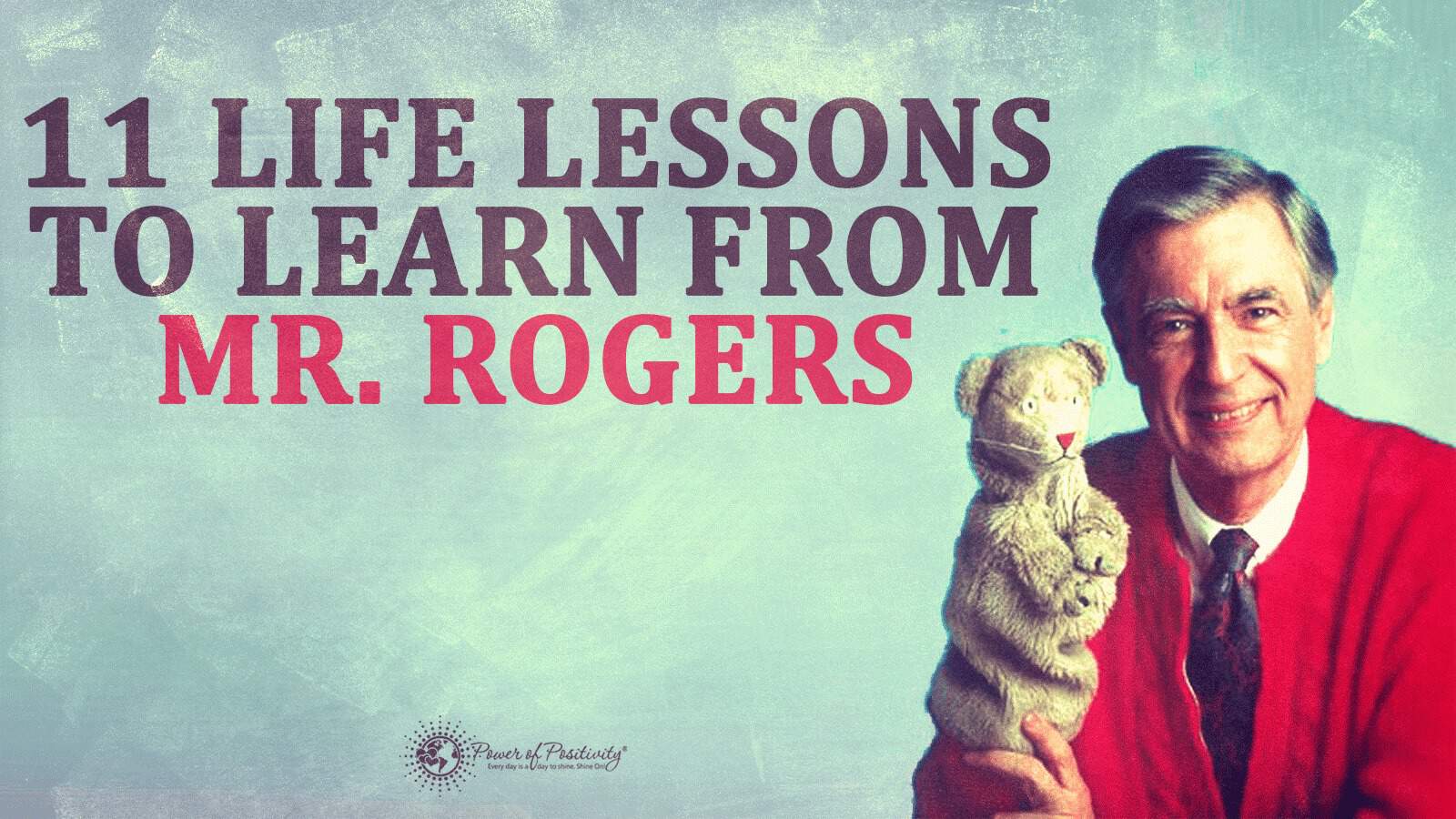You probably recognize him from the well-known children’s TV show, Mister Rogers’ Neighborhood, where he spread positive vibes, love, and kindness to his audience. He spent his whole life showing us that we should love everyone despite their supposed shortcomings, and offer compassion and understanding whenever we can. His warm, gentle personality and important life lessons touched the lives of many, and he showed us what being neighborly really meant.
Here are 11 life lessons we can learn from Mister Rogers:
1. We have an obligation to help one another on this planet.
“We live in a world in which we need to share responsibility. It’s easy to say, ‘It’s not my child, not my community, not my world, not my problem.’ Then there are those who see the need and respond. I consider those people my heroes.”
“I hope you’re proud of yourself for the times you’ve said ‘yes,’ when all it meant was extra work for you and was seemingly helpful only to somebody else.”
“When I was a boy and I would see scary things in the news, my mother would say to me, ‘Look for the helpers. You will always find people who are helping.’ To this day, especially in times of ‘disaster,’ I remember my mother’s words, and I am always comforted by realizing that there are still so many helpers–so many caring people in this world.”
2. Accept your feelings, but learn to deal with them in a healthy way.
“There’s no ‘should’ or ‘should not’ when it comes to having feelings. They’re part of who we are and their origins are beyond our control. When we can believe that, we may find it easier to make constructive choices about what to do with those feelings.”
“There is no normal life that is free of pain. It’s the very wrestling with our problems that can be the impetus for our growth.”
“Confronting our feelings and giving them appropriate expression always takes strength, not weakness. It takes strength to acknowledge our anger, and sometimes more strength yet to curb the aggressive urges anger may bring and to channel them into nonviolent outlets. It takes strength to face our sadness and to grieve and to let our grief and our anger flow in tears when they need to. It takes strength to talk about our feelings and to reach out for help and comfort when we need it.”
3. Understand that everyone is fighting a tough battle, so be kind to all.
“Part of the problem with the word disabilities is that it immediately suggests an inability to see or hear or walk or do other things that many of us take for granted. But what of people who can’t feel? Or talk about their feelings? Or manage their feelings in constructive ways? What of people who aren’t able to form close and strong relationships? And people who cannot find fulfillment in their lives, or those who have lost hope, who live in disappointment and bitterness and find in life no joy, no love? These, it seems to me, are the real disabilities.”
4. Love always wins.
“Love isn’t a state of perfect caring. It is an active noun like struggle. To love someone is to strive to accept that person exactly the way he or she is, right here and now.”
“Mutual caring relationships require kindness and patience, tolerance, optimism, joy in the other’s achievements, confidence in oneself, and the ability to give without undue thought of gain.”
“We need to help people to discover the true meaning of love. Love is generally confused with dependence. Those of us who have grown in true love know that we can love only in proportion to our capacity for independence.”
“The connections we make in the course of a life–maybe that’s what heaven is.”
5. We’re here to help others feel good about their own existence.
“As human beings, our job in life is to help people realize how rare and valuable each one of us really is, that each of us has something that no one else has–or ever will have–something inside that is unique to all time. It’s our job to encourage each other to discover that uniqueness and to provide ways of developing its expression.”
6. Don’t obsess over being perfect – it doesn’t exist.
“Little by little we human beings are confronted with situations that give us more and more clues that we aren’t perfect.”
7. Take the plunge of self-discovery.
“Discovering the truth about ourselves is a lifetime’s work, but it’s worth the effort.”
8. Cherish the little things in life.
“In the external scheme of things, shining moments are as brief as the twinkling of an eye, yet such twinklings are what eternity is made of — moments when we human beings can say “I love you,” “I’m proud of you,” “I forgive you,” “I’m grateful for you.” That’s what eternity is made of: invisible imperishable good stuff.”
9. Value yourself.
“The world needs a sense of worth, and it will achieve it only by its people feeling that they are worthwhile.”
10. Never give up.
“Often when you think you’re at the end of something, you’re at the beginning of something else.”
11. Keep things into perspective.
“Fame is a four-letter word. And like tape, or zoom, or face, or pain, or life, or love, what ultimately matters is what we do with it.”

















